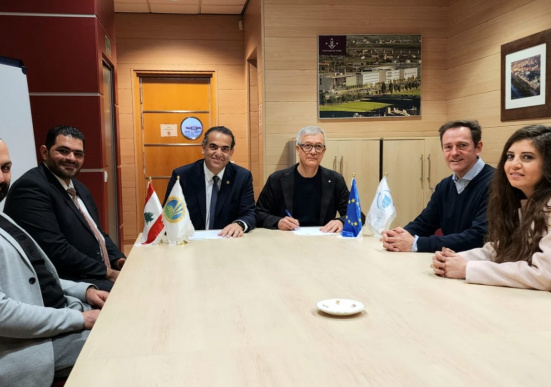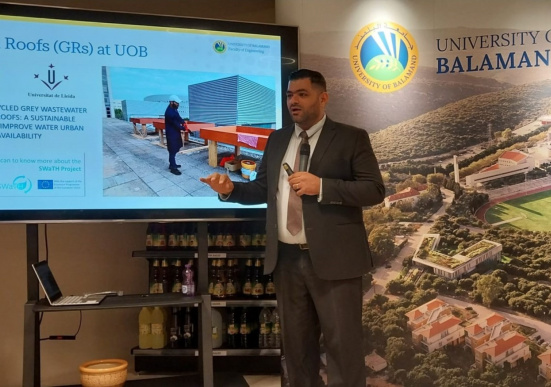Within the context of the SWaTH project, training on the current Finnish wastewater treatment practices was conducted in Finland between 21 and 25 November 2022. This mobility attracted many faculty members from various Lebanese and European partner institutions, namely: Makram El BACHAWATI, Marianne SABA, Wael HAMD from the University of Balamand – Lebanon; Sergio MORALES TORRES from the University of Granada – Spain; Ameur HAMAMI from the University of La Rochelle – France; Jad ABDALLAH from the Lebanese American University – Lebanon; Walid HARB, Roger MATTA from the Holy Spirit University of Kaslik – Lebanon and Talal Salem from Notre Dame University, Louaize – Lebanon.
The local organizers, Mika HUUHTANEN and Satu OJALA from the University of Oulu and other members from the institution, welcomed the Lebanese and European partners.
This multidisciplinary journey included technical presentations on different wastewater treatment processes and technologies. Several meetings and workshops revolved around the current Finnish water-related research practices, Geopolymer, and Photocatalytic Water treatment. Also, “circular economy in wastewater management” and “Membrane technology for water purification” lectures were organized during the mobility. The SWaTH team had the chance to visit various labs and facilities, such as the center of material analysis, the faculty of technology, and research units at the university. What was distinguishable about this mobility was the hands-on experience and lab work performed in the photocatalysis and geopolymers field.
A guided field visit to the Taskila Wastewater treatment plant was scheduled for the participants, accompanied by the respective parties. The existing Taskila wastewater treatment plant is typical of its generation. The plant, completed in 1973, was designed in the spirit of the time, which was characterized by the general expectation of fast population growth and expansion of the economy; this also affected the water demand and sewage quantity projection. Due to the pronounced oligotrophic waters of Finland, the main concern concerning wastewater discharged to recipients has been phosphorus. Therefore, more attention has been paid to removing this constituent rather than treating biological oxygen-consuming organic carbon or ammonium nitrogen.



